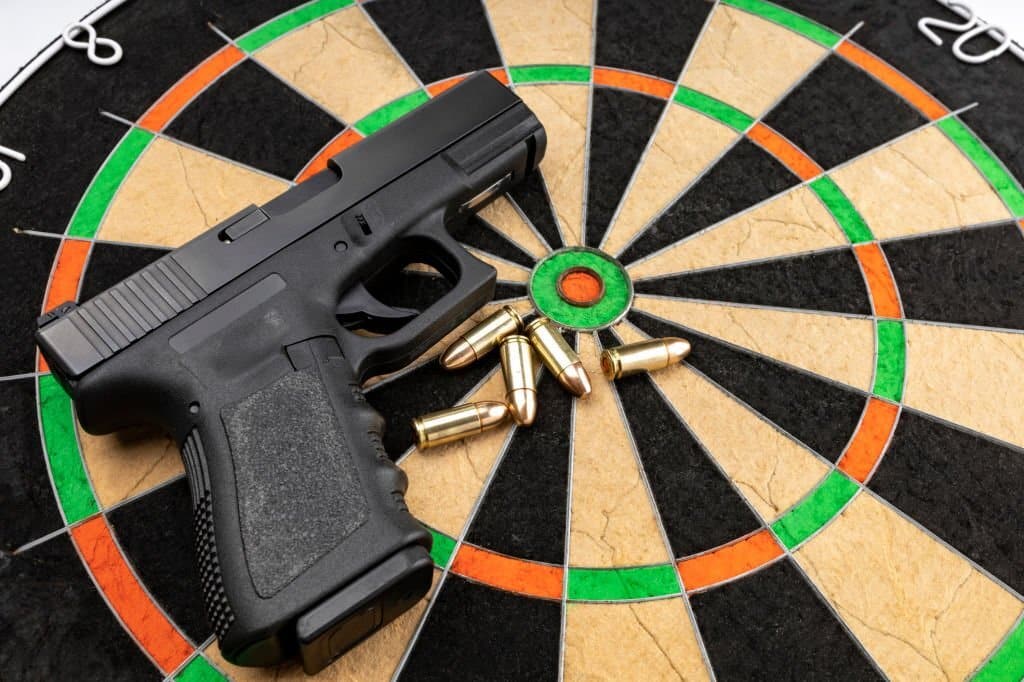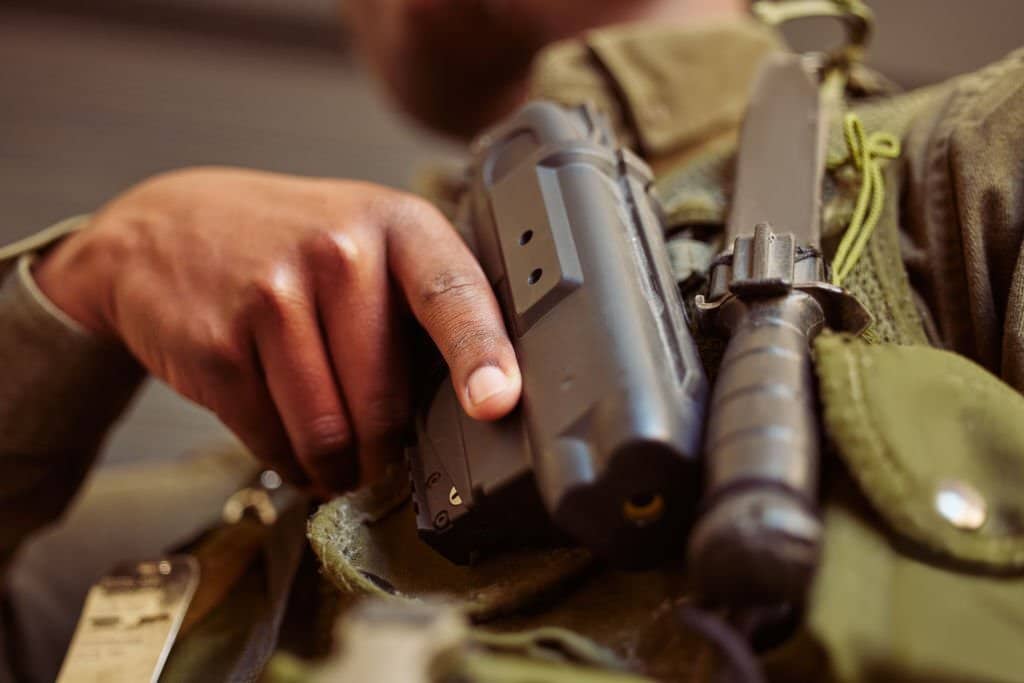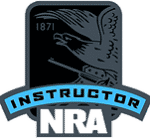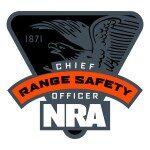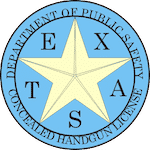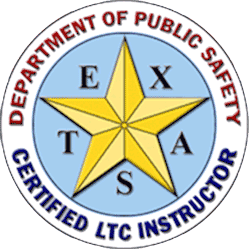Texas Department of Public Safety [Laws & Regulations] Concealed Carry in Texas
18–20-year-olds can now get a Concealed Carry in Texas. The new age requirement for the Texas License to Carry – Texas Concealed Carry is now only 18 years old per Federal Court Ruling.
Firearms Policy Coalition, Inc. et. al., v. Steven McCraw, et. al., No. 4:21-cv-1245-P
Texas License to Carry Permit Requirements
Applicant Requirements
In order to obtain a Concealed Carry in Texas or what is now called Texas License to Carry (LTC), applicants are required to meet certain requirements. These include being at least 21 years of age, having a clean criminal history, and completing a firearms training course. Applicants must also demonstrate that they are proficient with handguns and know how to safely handle them.
Document Requirements
When applying for your Texas License to Carry (LTC), you will need to provide a number of documents to support your application. The documents required vary depending on whether you are a resident or non-resident of Texas, and the type of license you are applying for.
The following is a list of the most common document requirements:
– A completed and signed application form
– A passport style photograph
– Proof of residency in Texas (if applicable)
– Proof of citizenship or legal status in the United States
– Proof of firearms training
– A valid driver’s license or ID card issued by the Texas Department of Public Safety
If you are a non-resident of Texas, you will also need to provide:
– A completed and signed application form
– A passport style photograph
– Proof of residency in your home state
– Proof of citizenship or legal status in the United States
– A valid driver’s license or ID card issued by your home state’s DMV
Issuing Authority:
The Texas Department of Public Safety is the issuing authority for the Texas License to Carry Permit.
Permit Length
The Concealed Carry in Texas – Texas License to Carry Permit is valid for four years.
Permit Cost
The cost of a Texas License to Carry Permit is $40.
Additionally, you will have to pay extra fees for fingerprinting!
Application Process
Texas Resident License
If you are a resident of Texas, you must complete the online application and submit it to the Department of Public Safety. You will also need to provide fingerprints and pass a background check for your Concealed Carry in Texas.
Non-resident License
If you are not a resident of Texas, you must complete the online application and submit it to the Department of Public Safety. In addition, you will also need to provide fingerprints, pass a background check, and submit a certified copy of your out-of-state permit.
Permit Application Timeline
The Department of Public Safety processes Texas License to Carry Permit applications in the order in which they are received. It can take up to 60 days to process an application. However, the processing time may be shorter or longer depending on the number of applications received.
Permit Renewal
Concealed handgun licenses in Texas are valid for four years. In most cases, a renewed license will be valid for an additional five years. The process of renewing a license is relatively simple- you just need to fill out the appropriate form and submit it to the department of public safety.
There are some eligibility requirements that must be met in order to renew a license, but as long as you are still qualified to possess a handgun, you should have no problem renewing your license.
Permit Denial
According to the Texas Department of Public Safety, residents who are denied a License to Carry permit may request an appeal within 30 days. The appeal must be in writing and must include the reasons for the appeal. In addition, the applicant or license holder must submit a copy of the original application and supporting documentation.
If the appeals process is unsuccessful, the applicant may reapply for a permit after six months. However, it is important to note that the appeals process is not a review of the original decision.
Rather, it is an opportunity for the applicant to provide additional information that was not considered in the original decision. As such, applicants should carefully consider whether or not to appeal a denial before taking action.
The process for obtaining a CCW license in Texas is fairly simple and straightforward. However, it is important to ensure that you meet all of the eligibility requirements and complete the required training. By following these steps, you can ensure that you are able to legally carry a concealed weapon in Texas.
Concealed Carry in Texas Concealed Carry Reciprocity
Permits From Other States
Texas is a Shall Issue State and will issue a Concealed Handgun License to residents of the state as well as non-residents. The Texas Concealed Carry Reciprocity recognizes permits from any state that has a concealed carry permit system recognizing Texas CHLs.
If you have a valid CHL from your home state, you can carry in Texas. You can also carry in Texas if you have a valid CHL from a state that honors Texas CHLs. There are currently more than 40 states that have concealed carry permit reciprocity with Texas.
Texas also recognizes any county or municipality within a state that has concealed carry permit reciprocity with Texas. If you have any questions about reciprocal states or localities, you should contact the Texas Department of Public Safety.
States That Recognize Texas’s Permit
Texas residents who have a valid concealed carry permit are allowed to carry in many states throughout the country. Texas has concealed carry reciprocity agreements with 31 states, meaning that those states will recognize a Texas concealed carry permit.
This means that gun owners with a valid permit can carry their firearms in those states, as long as they abide by the laws of the state they are in. Each state has different laws regarding concealed carry, so it is important to be familiar with the laws of the state you are carrying in.
However, with a valid Texas concealed carry permit, you will be able to carry your firearm in most states across the country.
License to Carry Laws & Regulations
Shall-Issue State
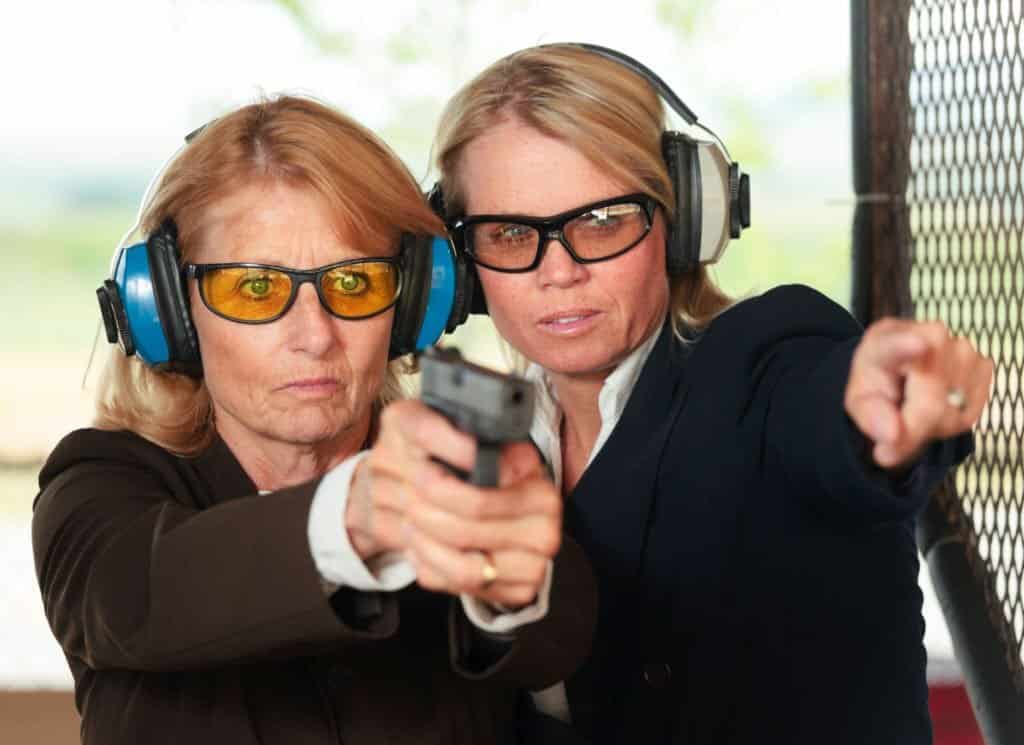
In the United States, gun laws vary from state to state. In a shall-issue state, the issuing authority (usually the sheriff of the county or the chief of police of the city) must issue a concealed carry permit to any applicant meeting certain minimal criteria laid down by federal law.
These criteria typically include citizenship or legal residency in the United States, completion of a firearms training course, and passage of a criminal background check. In some states, applicants must also demonstrate “good cause” for wanting to carry a concealed weapon.
Once issued, a permit generally remains valid for a set period of time (usually four or five years), after which it must be renewed. Some states have reciprocity agreements with other states, whereby concealed carry permits issued in one state are honored in the others.
Shall-issue laws have been enacted in a majority of states, although some states (known as “may-issue” states) give their issuing authorities more discretion in issuing permits.
Transportation of Firearms
In the state of Texas, it is legal to transport a firearm in a vehicle as long as the weapon is unloaded and out of reach of the driver or any passengers. The gun must also be in a case that is locked and securely stored in the trunk of the car.
If there is no trunk, the gun must be placed in a locked container that is out of sight and reach. These requirements apply to both concealed carry permit holders and those without a permit.
It is important to note that new law does not require motorists to notify law enforcement officers that they are carrying a firearm in their vehicle.
However, if an officer does ask about firearms during a traffic stop, it is best to be truthful and cooperate with any requests. Failure to do so could result in criminal charges.
Off-Limit Areas to License to Carry Permit Holders
There are several places where guns are always prohibited. This includes, but is not limited to, schools, universities, correctional facilities, polling places on election day, and within 1,000 feet of a court proceeding
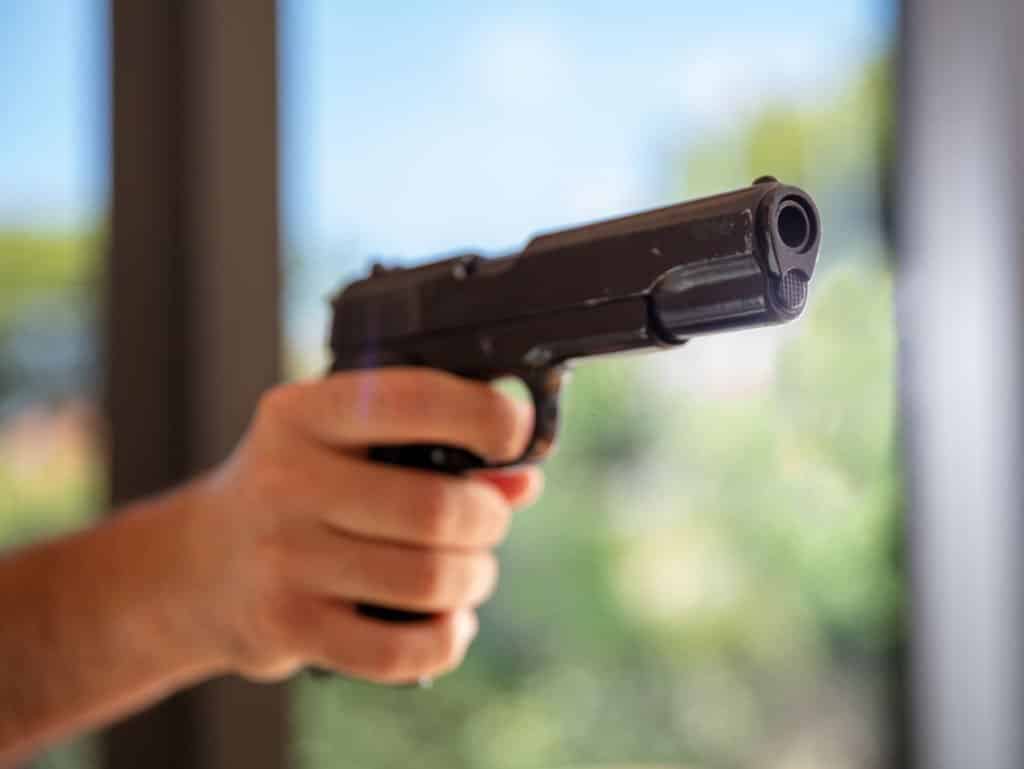
Carrying a gun in any of these places can result in criminal charges. It is important to be aware of these places where guns are always prohibited in order to avoid any legal issues.
Moreover, there are certain types of businesses that prohibit guns on their premises. Such as bars, nightclubs, and amusement parks
Finally, there are locations where guns are prohibited by law. These locations include airports, hospitals, and government buildings. Carrying a gun in any of these locations can also result in criminal charges.
Alcohol and Consumption
Texas law prohibits carrying a handgun while under the influence of alcohol or drugs. The definition of “under the influence” is defined as not having the normal use of mental or physical faculties by reason of the introduction of alcohol, a controlled substance, a drug, a dangerous drug, or a combination thereof into the body.
Simply put, it is illegal to carry a handgun while drunk. If an individual is caught carrying a handgun while intoxicated, they will be charged with a Class A misdemeanor. The penalties for a Class A misdemeanor include up to one year in jail and/or up-to a $4,000 fine.
Additionally, an individual’s license to carry will be automatically suspended for 180 days. For subsequent offenses, the license will be suspended for two years.
Disclosure or Use of Information
The Texas Department of Public Safety (DPS) is committed to protecting the privacy of all individuals who are licensed to carry a concealed handgun in Texas.
As such, the DPS takes care to ensure that any information contained in its files and records regarding licensed individuals is only disclosed to criminal justice agencies when required by law.
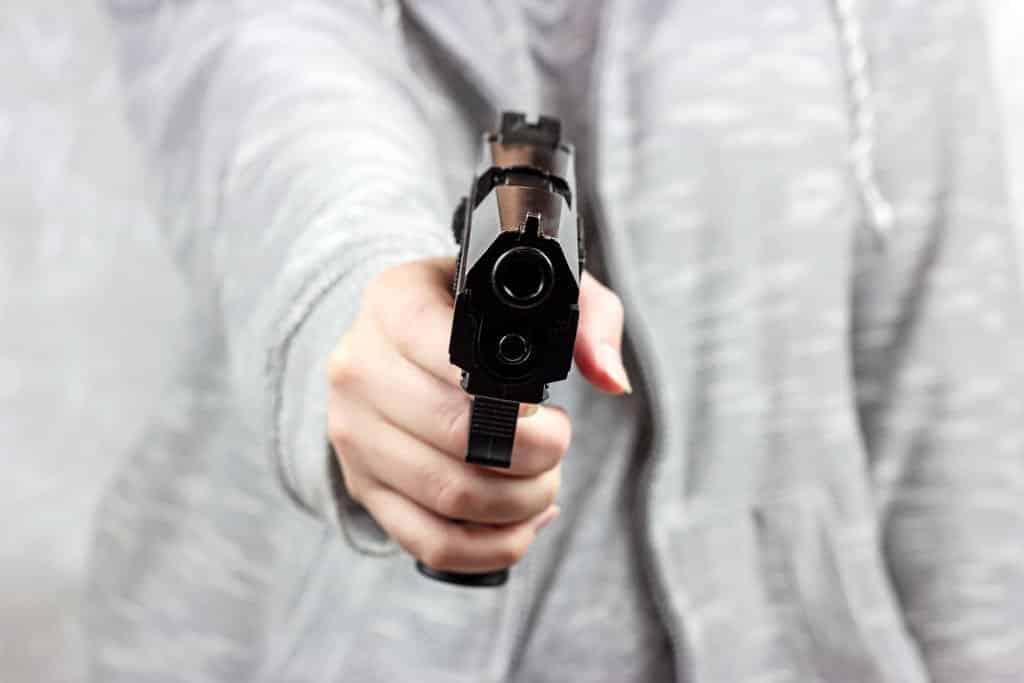
In addition, the Department of Public Safety may permit law enforcement authorities from outside the state to use personal identifying information obtained by this department through the operator’s license or other identification card application process to determine if the applicant is licensed by this department to carry a concealed handgun in Texas.
The release of information under this subsection is limited to use by law enforcement agency for the purpose of determining whether an individual who possesses or intends to possess a firearm in another state violates the laws of that state.
Permitless Public Carry
Permitless public carry means that any law-abiding citizen can carry a firearm openly or concealed without having to obtain a license from the government.
This is in contrast to licensed concealed carry, where a person must demonstrate proficiency with firearms, pass a background check and receive approval from their local law enforcement before being allowed to carry a weapon.
Open carry (unlicensed carry) is currently allowed in 18 states, including Texas. Proponents of this law argue that it allows law-abiding citizens to better protect themselves and their families from criminals.
They also argue that the government should not have the right to tell people who are otherwise legally allowed to own a gun that they cannot carry it with them for self-defense.
Firearm Safety Training
Firearm safety training is providing technical training in the safe handling of firearms and personal defense. The goal is to provide skills that will protect lives, property, and families from the threats posed by dangerous animals or incidences accompanying disasters.
Some courses are also designed for civilian self-defense purposes only. It includes facility tours with lectures on firearm science and a demonstration of proper techniques for loading, unloading, and shooting firearms.
In order to obtain a CCW license in Texas, applicants must first complete a Firearm Safety Training course from an instructor certified by the Texas Department of Public Safety.
The course must be at least four hours long and cover topics such as handgun safety, use of force laws, and non-violent dispute resolution. After completing the course, applicants must pass a written exam and live-fire exercise.
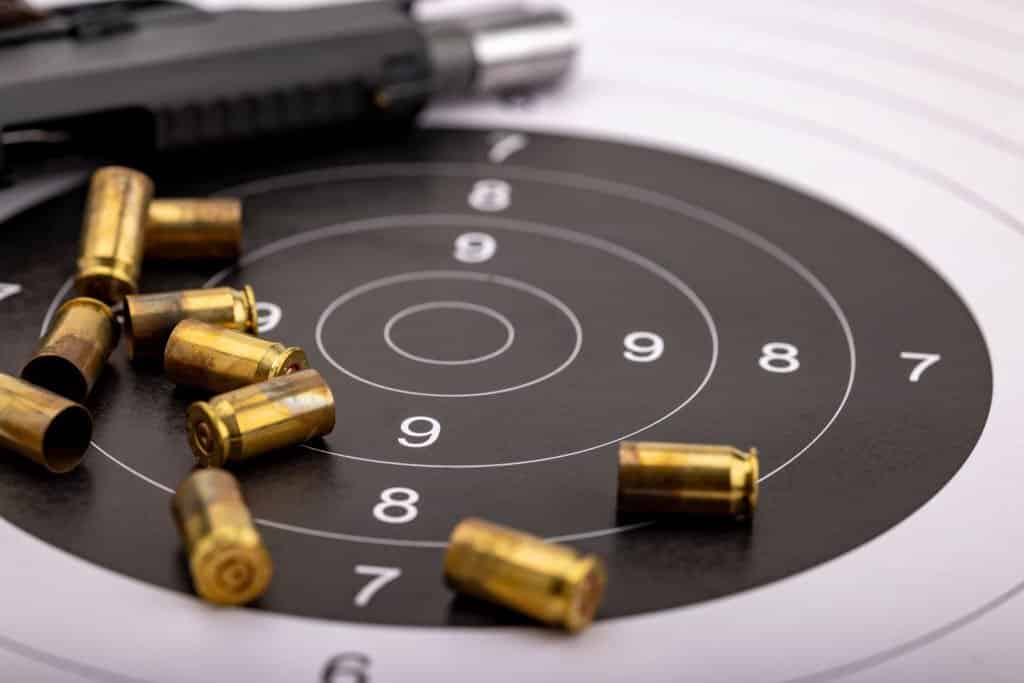
While carrying a concealed handgun is a responsibility that should not be taken lightly, the process for obtaining a CCW license in Texas is not unduly burdensome.
By taking the time to complete a Firearm Safety Training course and submit the required documentation, Texans can exercise their right to self-protection in accordance with state law.

